Guillermo R. Simari
A Comparative Study of Some Central Notions of ASPIC+ and DeLP
Sep 11, 2019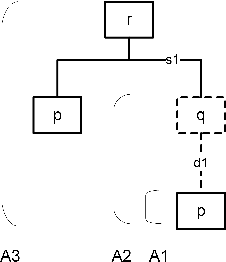
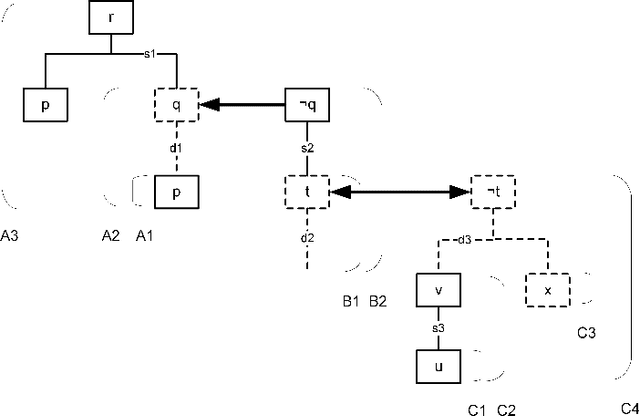
Abstract:This paper formally compares some central notions from two well-known formalisms for rule-based argumentation, DeLP and ASPIC+. The comparisons especially focus on intuitive adequacy and inter-translatability, consistency, and closure properties. As for differences in the definitions of arguments and attack, it turns out that DeLP's definitions are intuitively appealing but that they may not fully comply with Caminada and Amgoud's rationality postulates of strict closure and indirect consistency. For some special cases, the DeLP definitions are shown to fare better than ASPIC+. Next, it is argued that there are reasons to consider a variant of DeLP with grounded semantics, since in some examples its current notion of warrant arguably has counterintuitive consequences and may lead to sets of warranted arguments that are not admissible. Finally, under some minimality and consistency assumptions on ASPIC+ arguments, a one-to-many correspondence between ASPIC+ arguments and DeLP arguments is identified in such a way that if the DeLP warranting procedure is changed to grounded semantics, then DeLP notion of warrant and ASPIC+'s notion of justification are equivalent. This result is proven for three alternative definitions of attack.
An approach to Decision Making based on Dynamic Argumentation Systems
Mar 05, 2019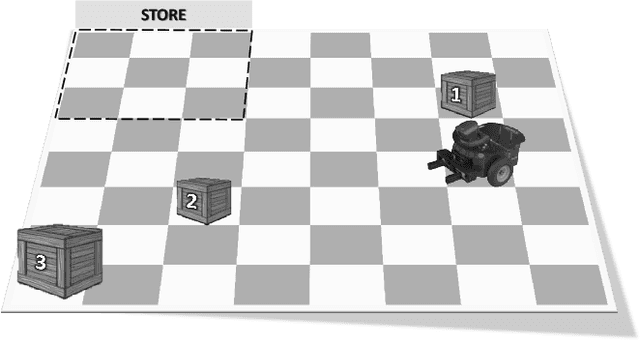

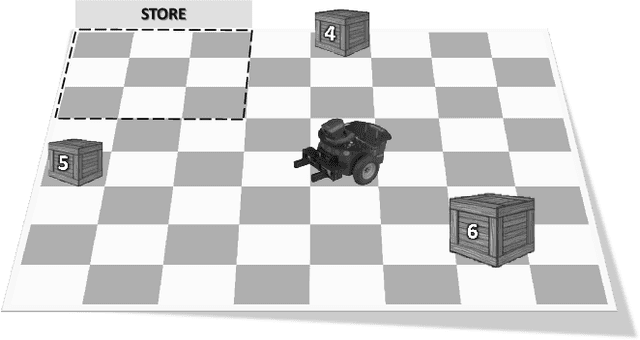
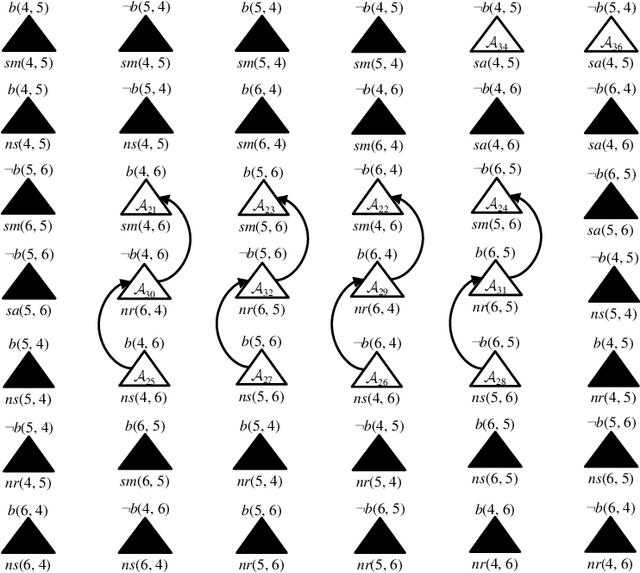
Abstract:In this paper, we introduce a formalism for single-agent decision making that is based on Dynamic Argumentation Frameworks. The formalism can be used to justify a choice, which is based on the current situation the agent is involved. Taking advantage of the inference mechanism of the argumentation formalism, it is possible to consider preference relations and conflicts among the available alternatives for that reasoning. With this formalization, given a particular set of evidence, the justified conclusions supported by warranted arguments will be used by the agent's decision rules to determine which alternatives will be selected. We also present an algorithm that implements a choice function based on our formalization. Finally, we complete our presentation by introducing formal results that relate the proposed framework with approaches of classical decision theory.
Bipolar in Temporal Argumentation Framework
Mar 05, 2019



Abstract:A Timed Argumentation Framework (TAF) is a formalism where arguments are only valid for consideration in a given period of time, called availability intervals, which are defined for every individual argument. The original proposal is based on a single, abstract notion of attack between arguments that remains static and permanent in time. Thus, in general, when identifying the set of acceptable arguments, the outcome associated with a TAF will vary over time. In this work we introduce an extension of TAF adding the capability of modeling a support relation between arguments. In this sense, the resulting framework provides a suitable model for different time-dependent issues. Thus, the main contribution here is to provide an enhanced framework for modeling a positive (support) and negative (attack) interaction varying over time, which are relevant in many real-world situations. This leads to a Timed Bipolar Argumentation Framework (T-BAF), where classical argument extensions can be defined. The proposal aims at advancing in the integration of temporal argumentation in different application domain.
An Approach to Characterize Graded Entailment of Arguments through a Label-based Framework
Mar 05, 2019



Abstract:Argumentation theory is a powerful paradigm that formalizes a type of commonsense reasoning that aims to simulate the human ability to resolve a specific problem in an intelligent manner. A classical argumentation process takes into account only the properties related to the intrinsic logical soundness of an argument in order to determine its acceptability status. However, these properties are not always the only ones that matter to establish the argument's acceptability---there exist other qualities, such as strength, weight, social votes, trust degree, relevance level, and certainty degree, among others.
Dynamics of Knowledge in DeLP through Argument Theory Change
Nov 29, 2011Abstract:This article is devoted to the study of methods to change defeasible logic programs (de.l.p.s) which are the knowledge bases used by the Defeasible Logic Programming (DeLP) interpreter. DeLP is an argumentation formalism that allows to reason over potentially inconsistent de.l.p.s. Argument Theory Change (ATC) studies certain aspects of belief revision in order to make them suitable for abstract argumentation systems. In this article, abstract arguments are rendered concrete by using the particular rule-based defeasible logic adopted by DeLP. The objective of our proposal is to define prioritized argument revision operators \`a la ATC for de.l.p.s, in such a way that the newly inserted argument ends up undefeated after the revision, thus warranting its conclusion. In order to ensure this warrant, the de.l.p. has to be changed in concordance with a minimal change principle. To this end, we discuss different minimal change criteria that could be adopted. Finally, an algorithm is presented, implementing the argument revision operations.
 Add to Chrome
Add to Chrome Add to Firefox
Add to Firefox Add to Edge
Add to Edge